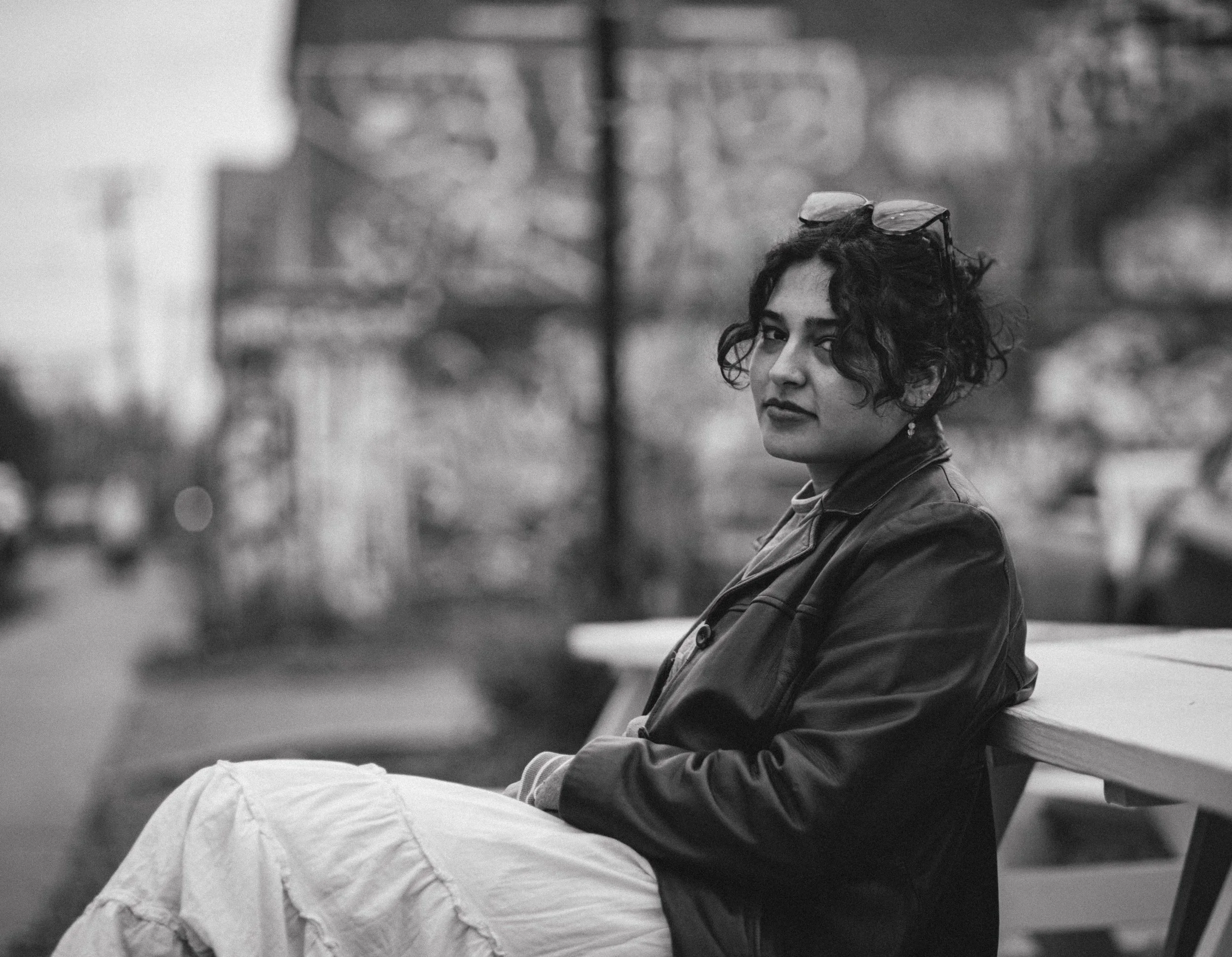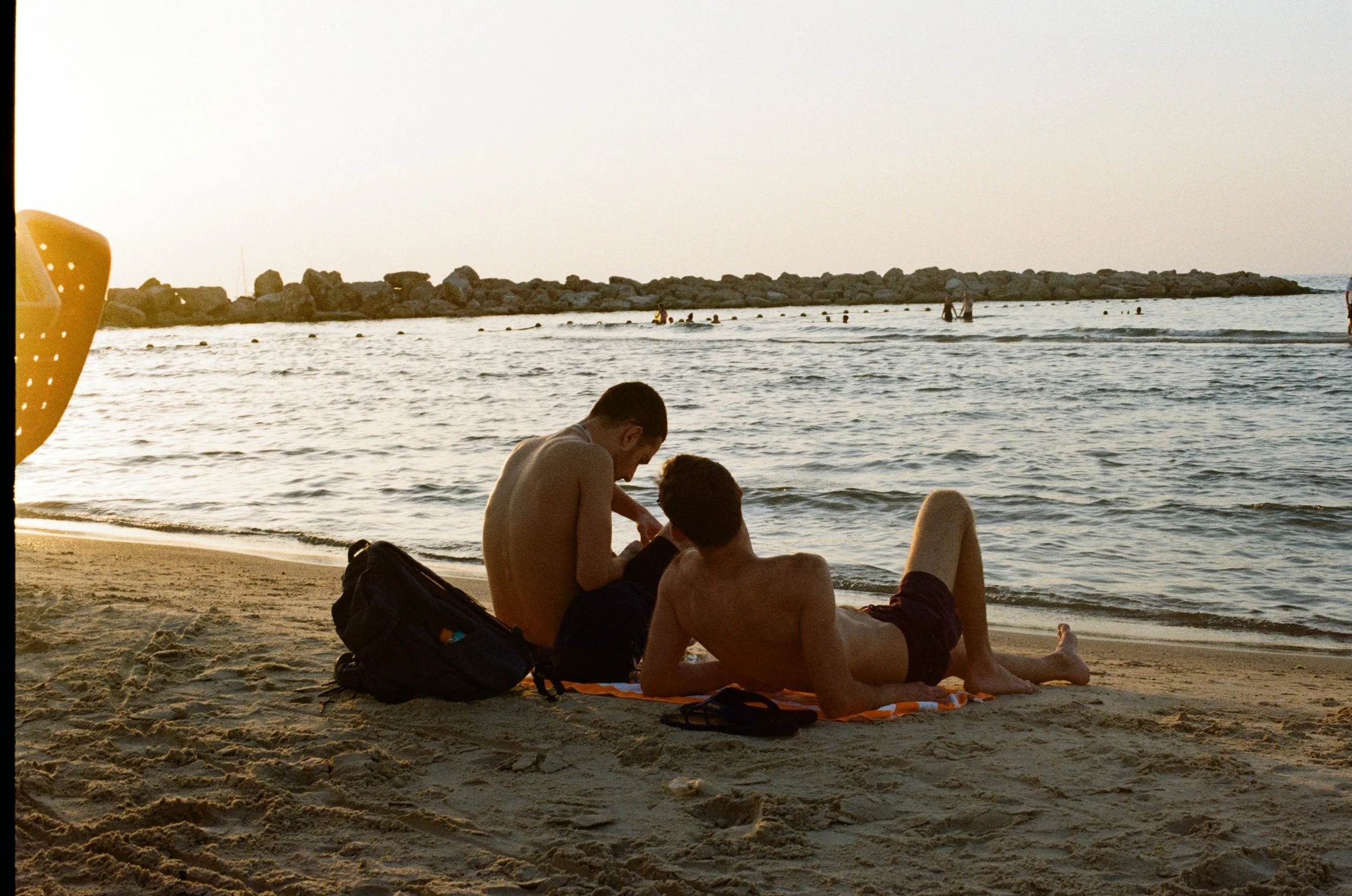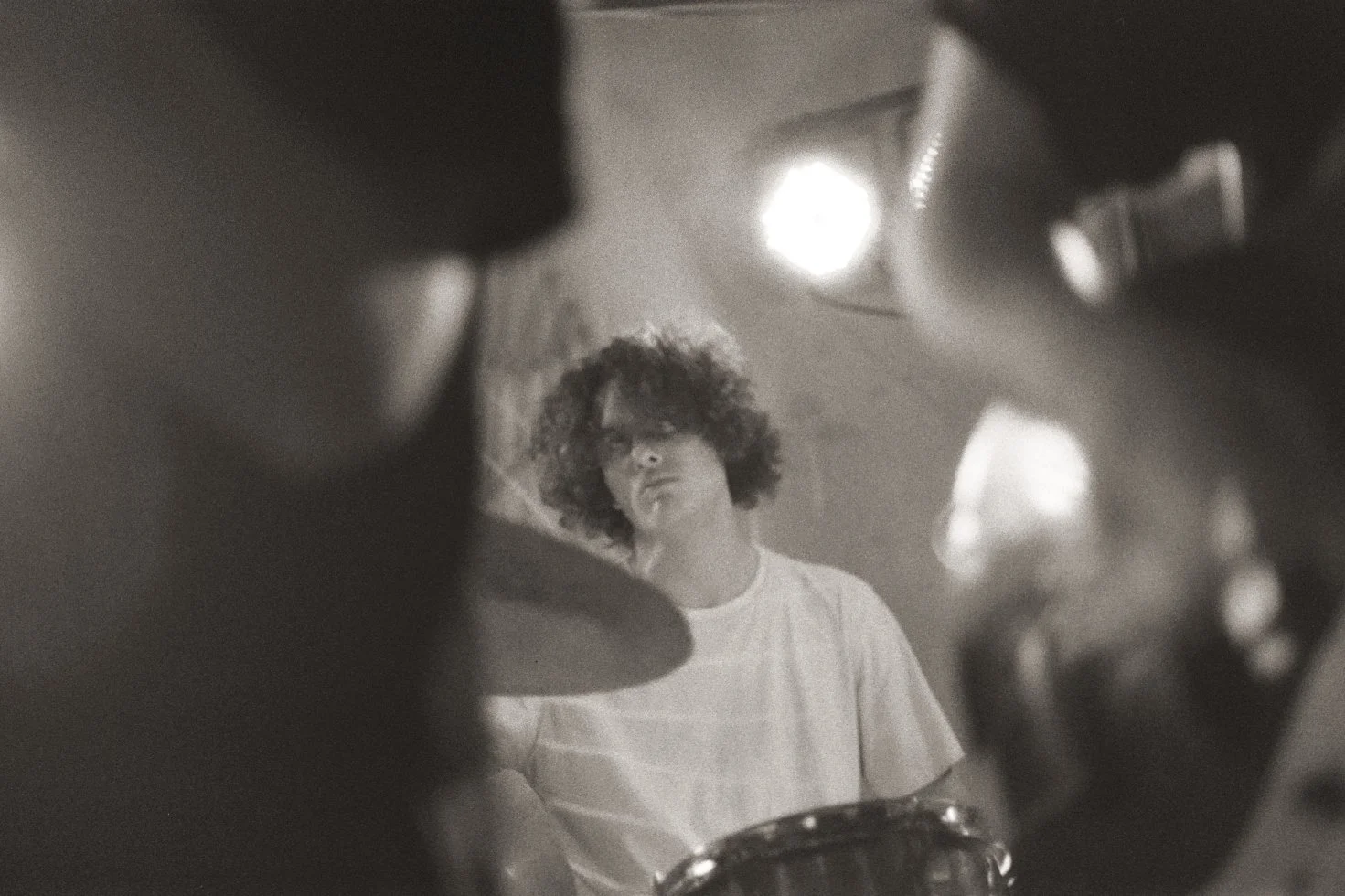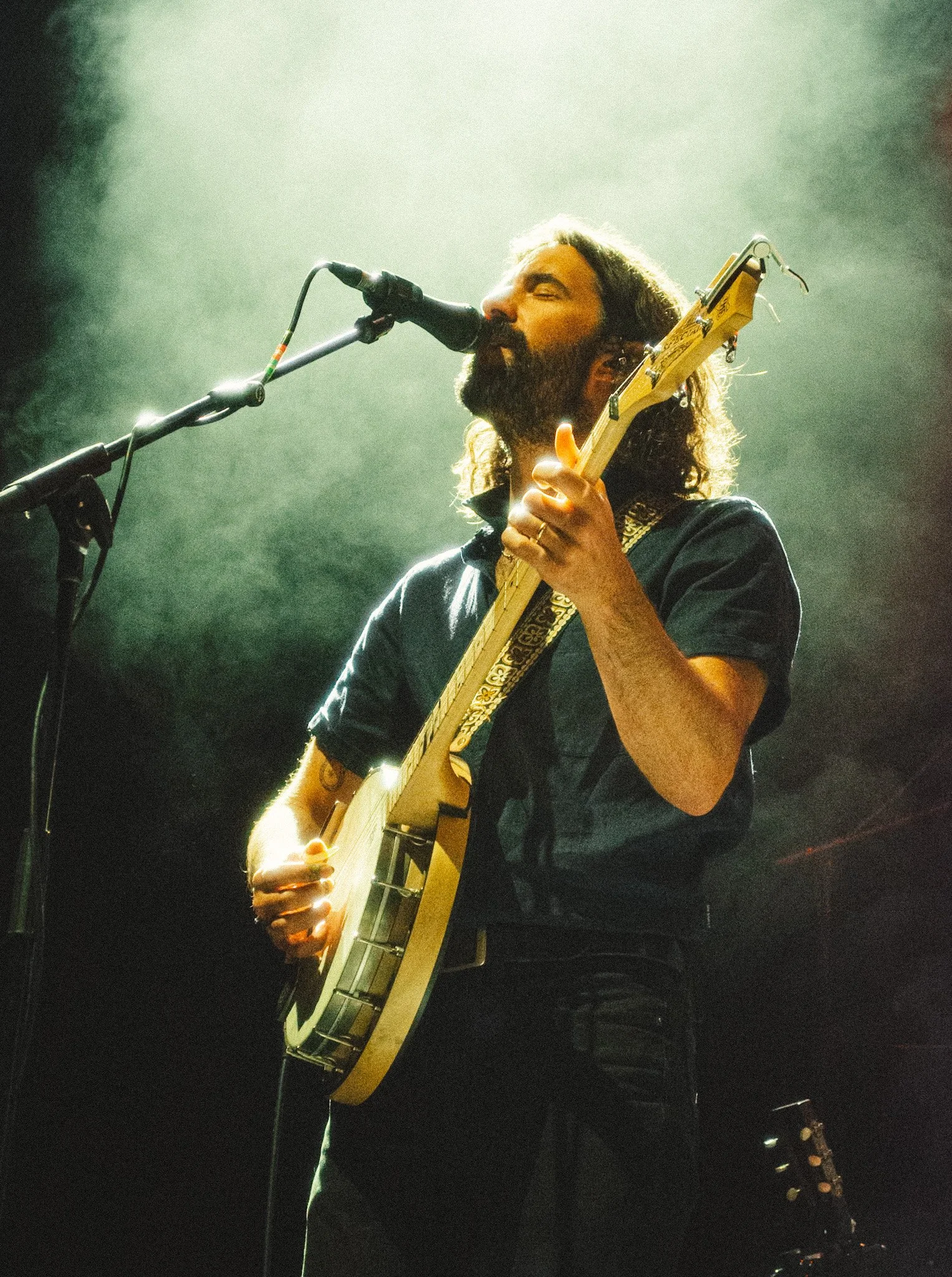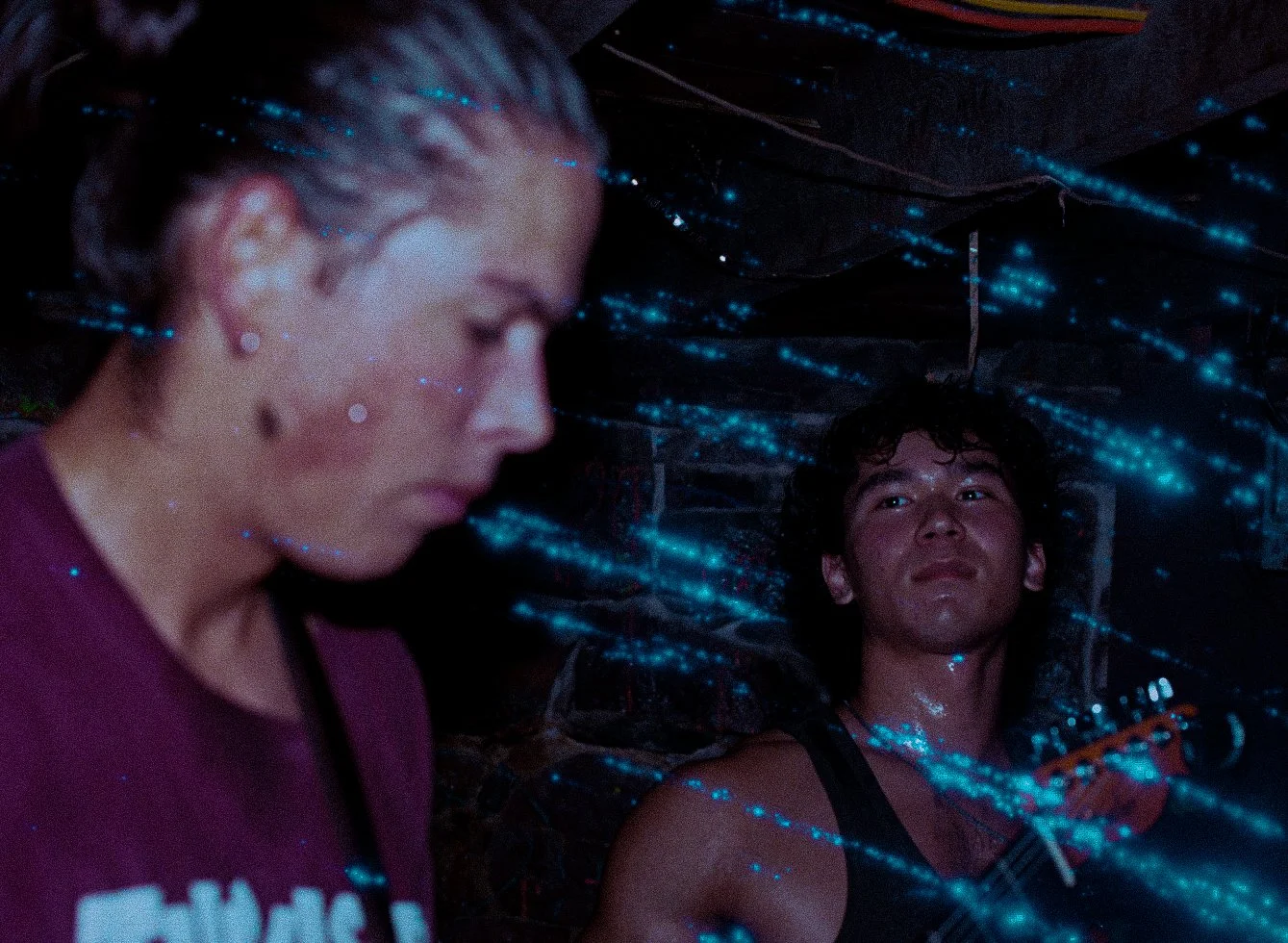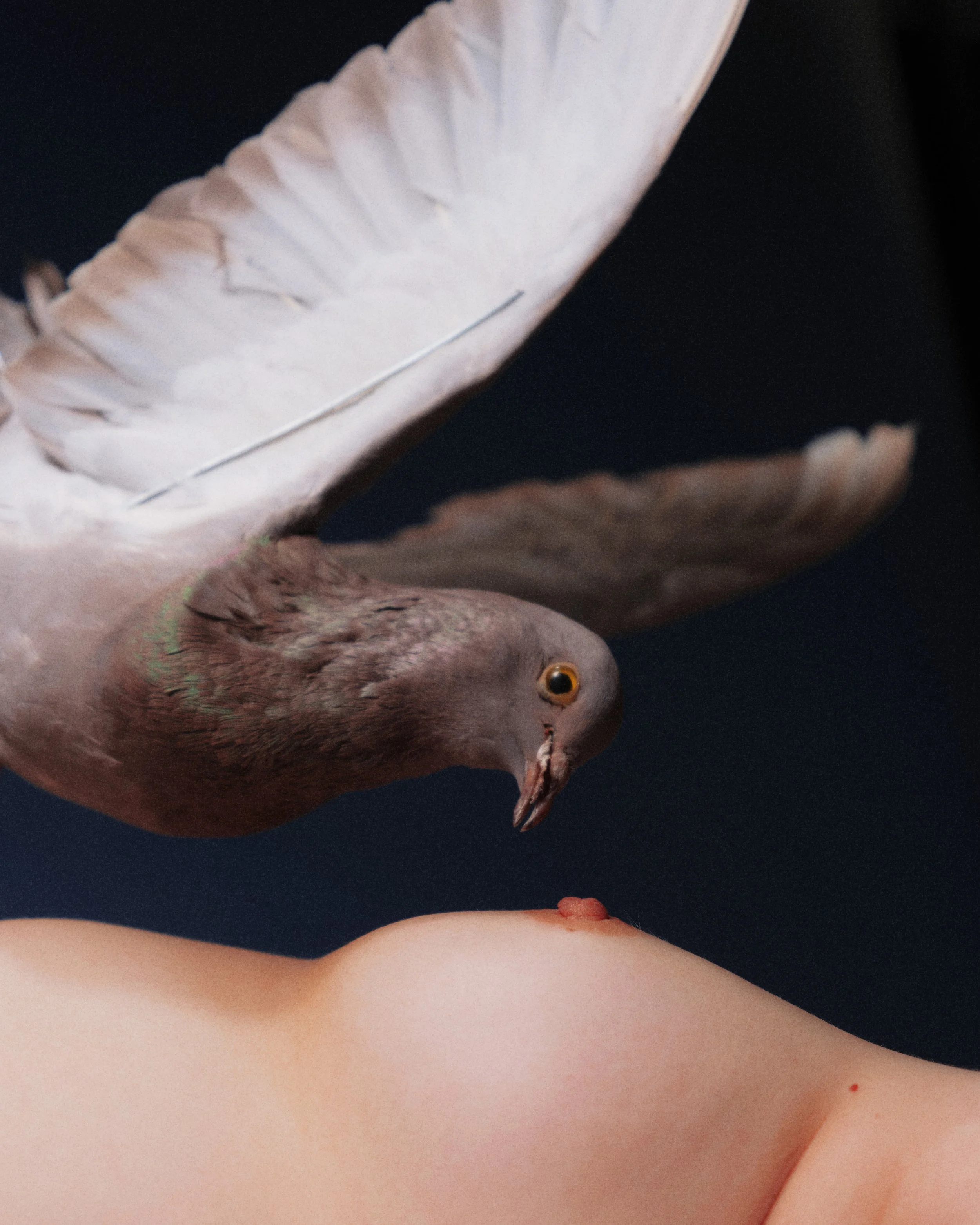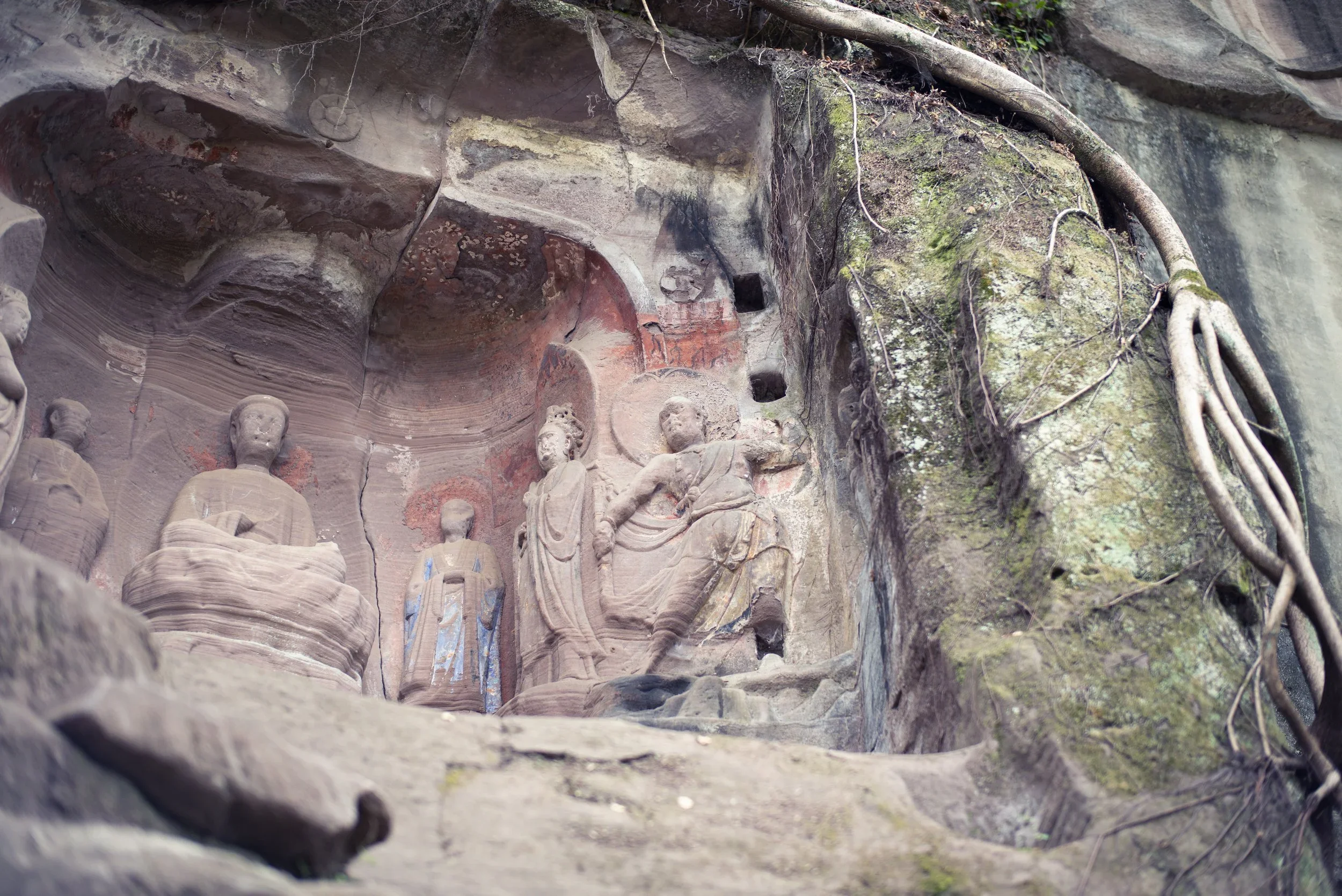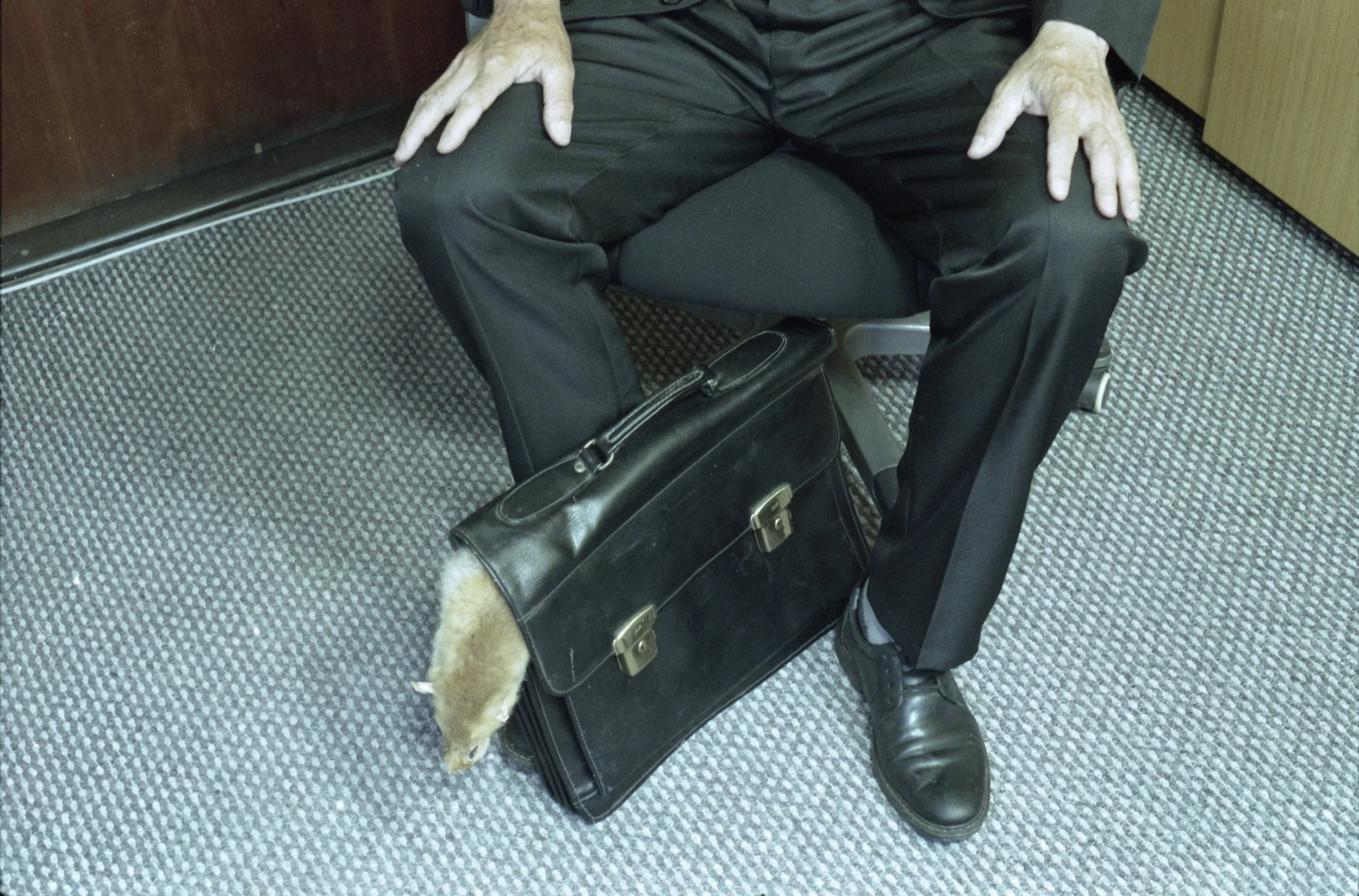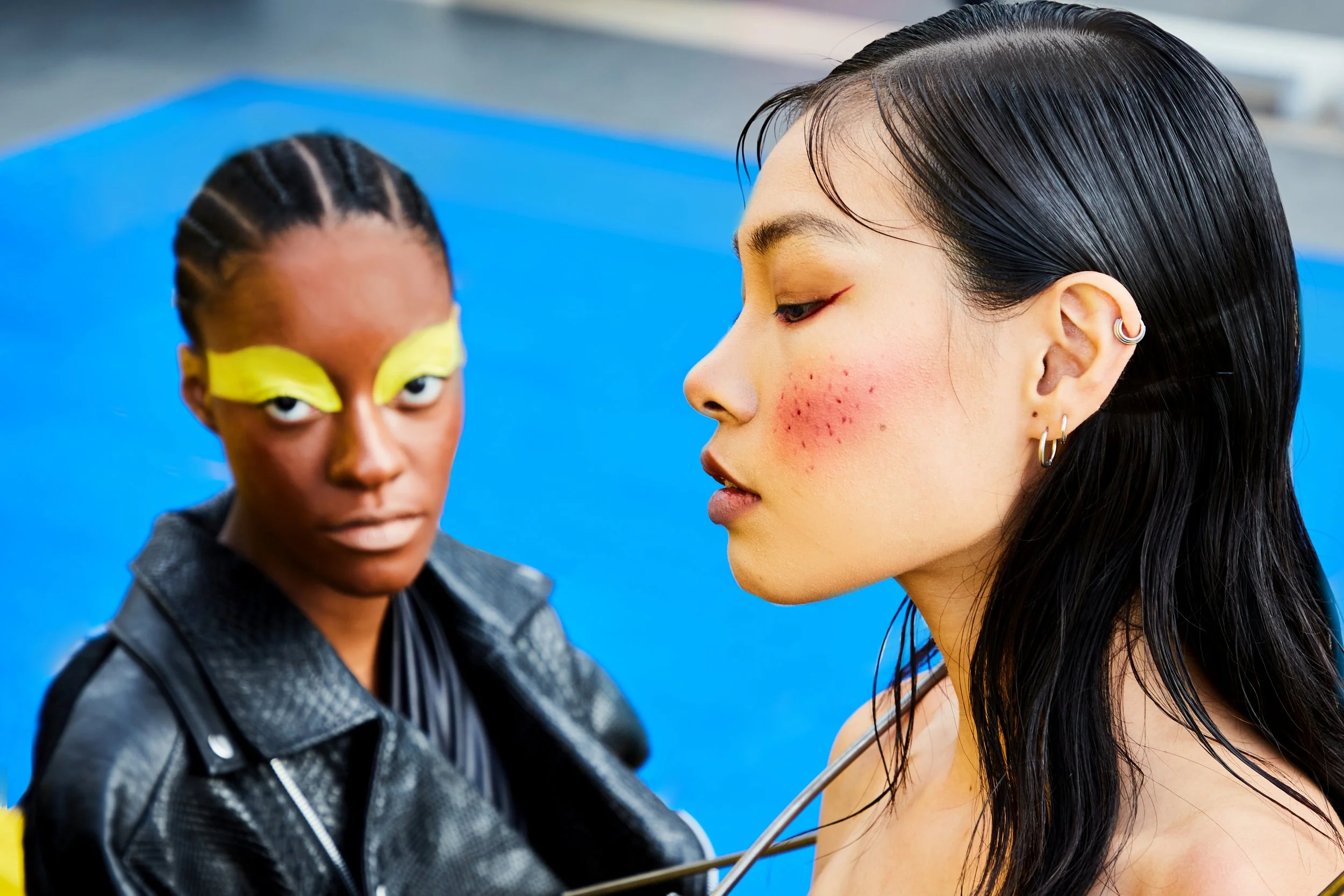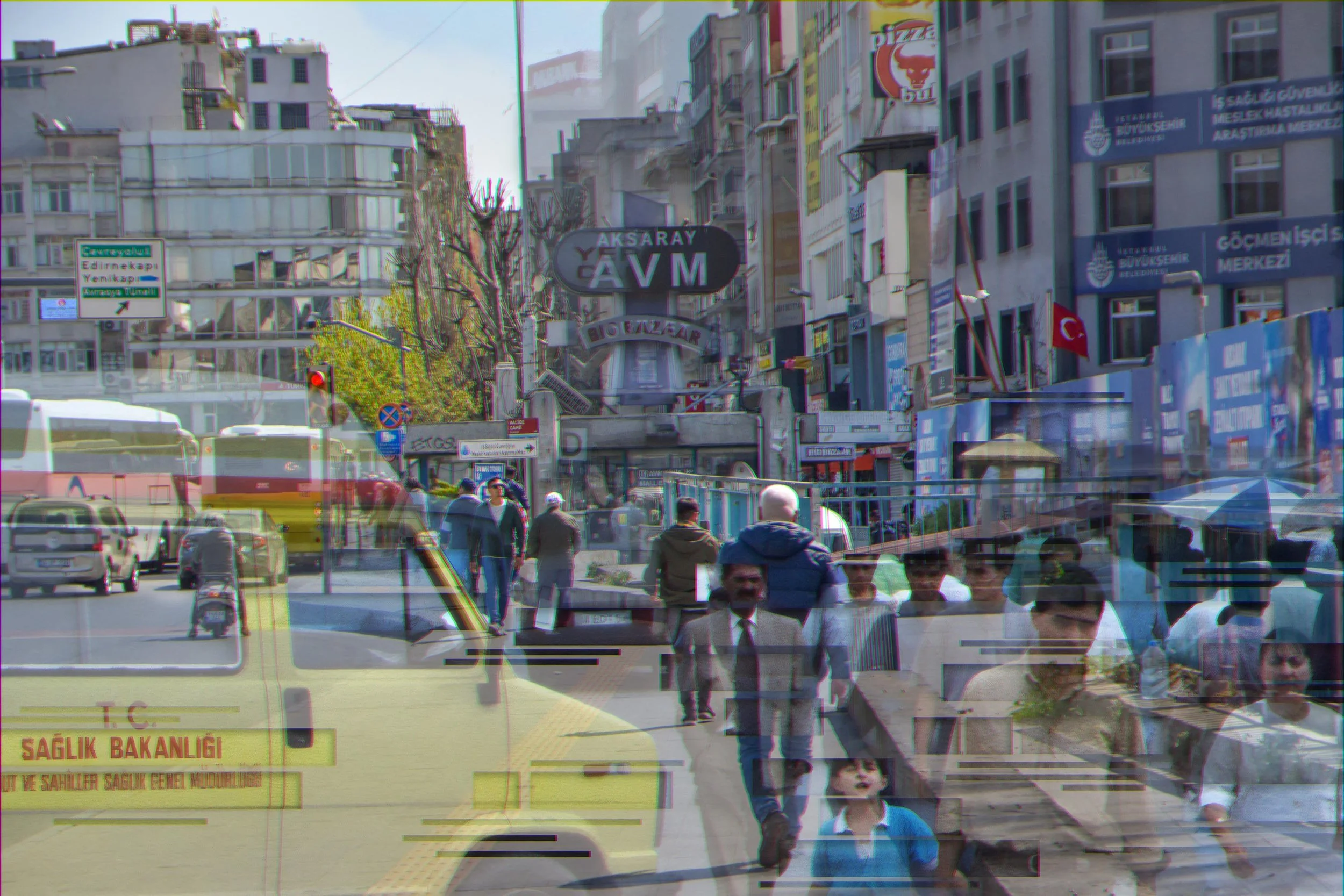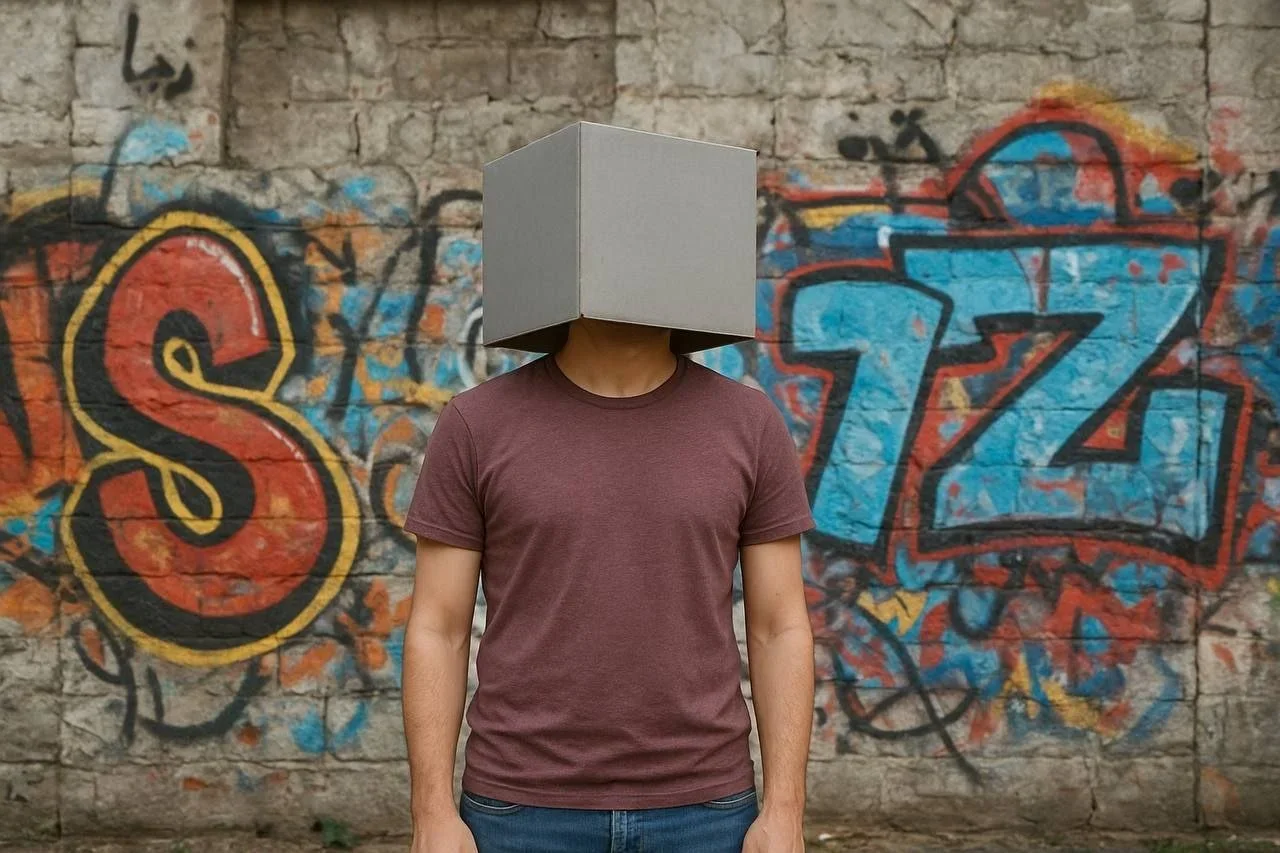10 Questions with Ari Mei-Dan
Al-Tiba9 Art Magazine ISSUE19 | Featured Artist
Ari Mei-Dan is a Boston-based multidisciplinary photographer and filmmaker who began her career by complete accident. What started as a hobby took a turn when Ari brought a cheap camera to a show, and she has never looked back. Now her focus is largely on documentary and music-based work across several media. As an Israeli-American who has lived across continents, Ari’s relationship with identity and belonging is constantly evolving. Her experiences with immigration inspire her love for documentary, music, and portraiture: mediums through which she has found both refuge and connection. With her camera, she aims to amplify the nuances of people, places, and community. Her work draws inspiration from artists like Annie Leibovitz, Spike Jonze, Nick Ut, as well as the very people around her.
Ari has collaborated with artists including Moondogs and Danny and the Parts, and has shot for publications such as Five Cent Sound, The Berkeley Beacon, Milk Crate WECB, and Index Magazine. She is currently in her final year at Emerson College in Boston, where she is pursuing a BA in film with concentrations in both photography and post-production.
Ari Mei-Dan - Portrait
ARTIST STATEMENT
Influenced by ‘90s and early 2000s filmmaking, photojournalism, and the DIY music scene that surrounds her, Ari Mei-Dan is not only a photographer and filmmaker, but also an immigrant driven by a single question: what makes people people?
Whether through portraiture, concert photography, or documenting the things around her, she strives to capture moments of high emotion and true human-ness. Her work draws inspiration from artists like Annie Leibovitz, Spike Jonze, Nick Ut, as well as the very people around her.
With her 35mm film camera always at hand, Ari is prepared to look the world in the eye. What will be next?
Circle and Time, Digital Photography, 2025 © Ari Mei-Dan
AL-TIBA9 ART MAGAZINE ISSUE19
Get your limited edition copy now
INTERVIEW
In your statement, you mentioned that your creative journey started by accident with a cheap camera at a show. What clicked for you that night, and how did that moment shift your path?
I used to carry around this crappy point-and-shoot with me everywhere. You seriously could not catch me without it; I was attached to it.
In my first year of college, some friends and I went out to a show, and one of them knew the guitarist for one of the bands playing somehow. I used to go to school in Burlington, Vermont, where the music scene is super prominent; you could find me out at shows basically every weekend. The guitarist saw my camera and insisted that I take photos of their band. I had a fun time doing it, but I am not joking when I say that the photos turned out terrible. They are not seeing the light of day.
The band ended up really liking the photos and kept asking me to come to their shows. For me, my love for music photography was more of a gradual thing than having something "click" the first time I did it. Every time I did it, I enjoyed it more.
I was also at a point in college where I had no idea what I wanted to study or do with my life. Eventually, more and more people were asking me to take photos for them, and I was having a fantastic time doing it. I was always a pretty creative person, and this just felt… natural for me.
Ultimately, I was between studying film and linguistics, and it just made sense for me to study film. I enjoyed it, I'm a big movie nerd, and it was a career I was willing to make happen. I don't regret it at all. I fall more in love with photography each time I do it.
Two Men and a Sunset, 35mm Film Photography, 2023 © Ari Mei-Dan
After that night, how did you develop into the artist you are today? What training, experiences and role models helped you along the way?
When I was in college in Vermont, the film program at the school was heavily theory-based, and the only practical experiences you could really get were the opportunities you sought out yourself. A huge driver for me at the time was my frustration at that, and that's also why I wanted to be so involved in the music scene in town. I credit a huge part of my growth as an artist to the music scene in Burlington, because there is such an atmosphere of supporting every single artist. Even when I was starting off and frankly not a great photographer yet, the people around me continued to uplift me and provide me with opportunities. I met some of my closest friends through it as well.
Moving to Boston for film school was a hard choice, but I don't regret it whatsoever. Being surrounded by so many like-minded artists once again reminded me just how important community is. I learned so much just by watching and working with so many talented people. I've had film set horror stories, and I've also met some of my closest collaborators yet. It was a good challenge for me, and I found myself constantly pushing myself just to improve, which I didn't get so much in Vermont. It really felt like I was part of something bigger than myself, and within one year of living in Boston, I saw my art develop in ways I couldn't have even imagined.
As someone who works in both photography and film, how do you decide which medium to use for a particular story or subject?
Especially in a world where people's attention spans are actively getting shorter, photography has remained my go-to medium. It feels the most accessible. It also doesn't help that I have more experience with it. I really do believe that some pictures are worth a thousand words – if you do it right.
I'm a huge writer as well, and there is something really magical about bringing stories to life, which is why I love film as a medium so much. I've usually leaned more towards film for heavier or more loaded stories that I can't capture on photography otherwise, but being in film school has unlocked an incredibly deep love for narrative film, and I've been pushing myself to get more comfortable with that as a medium. It's one of those things I just can't get enough of doing.
But I guess at the end of the day, I love utilising both, and it's just a matter of which medium feels right for the story I'm trying to tell. This is definitely the type of question where my answer changes by the day.
The Exhausted Academic, Digital Photography, 2023 © Ari Mei-Dan
Self-Portrait, Digital Photography, 2025 © Ari Mei-Dan
Your work often explores identity and belonging. How has your experience living between cultures influenced the way you see and frame people?
A giant part of my identity is the fact that I'm a Jewish immigrant. I was born in Israel but lived in 5 countries by the age of 8, so the multicultural experience is very real to me. Eventually, my family settled in Boulder, Colorado, which is not a super diverse or Jewish place by any grand means, so I grew up trying to find belonging in other spaces. I was admittedly a band kid in school!
In hand with that, I don't think I quite knew how to handle all of my big feelings about finding my place. It's still a journey for me as I continue to find my footing. Photography became this great therapeutic thing for me: to be able to capture all my memories and moments. At the same time, I'm a very people-oriented person and found myself also drawn to those around me. I do believe that began as a subconscious thing, I've always been interested in how people fit themselves into their surroundings because I struggled with it a lot, and eventually I realised that a lot of my photos happened to be people-focused. Like, a photo of my grandmother reading a book to my baby cousin or a photo of my friend observing himself in the mirror. How do people interact with others? How do they interact with themselves? I think I was just naturally drawn to these questions. Then it became more intentional.
What draws you to shooting live music and musicians? Is it the energy, the community, or something else?
I grew up in a pretty creative family and was surrounded by music. We had a record player in the living room, and my mom would always play Beatles or Ella Fitzgerald records for us. From an early age, my parents encouraged my siblings and me to learn an instrument, regardless of which one, and music ended up being one of the first things I ever fell in love with. I was in a few bands growing up, started writing songs as a teenager, and fully considered becoming a musician for a bit. What was initially a great refuge for me when I was younger became an awesome place to find community. People are not kidding when they say that music transcends language. You don't even need to be playing to feel the connection and emotion in the room. Have you ever seen a person's face after a really good guitar solo? Or how a band member responds to another's really nasty riff?
Music has a great way of bringing people together. I met some of my closest friends through music. I do think that my upbringing in music draws me to be involved in it in any way I can, but I keep coming back for the people. No doubt about it.
Owen In-Between, 35mm Film Photography, 2023 © Ari Mei-Dan
You often use 35mm film. What is it about working with analogue that speaks to you, especially in a fast-paced digital world?
I like to joke that I was forced into using analogue photography, and that's what got me into it. I went to an overnight summer camp growing up, and they were very strict on no digital technology there, so people brought things like Polaroids and disposable cameras in order to document their time there.
Initially, I had one of those colourful Polaroid cameras that would print out the picture from the top. One summer, curiosity got the best of me, and I brought a disposable camera instead. There was something just so exciting about having to wait to see your photos, and finally being able to huddle over them once they came back from the lab.
The element of having to think about the photos you take has such an appeal to me. I used to shoot exclusively on film before beginning to shoot on digital as well, and it's seriously shaped how I think as a photographer. It makes you slow down and approach each photo with more intentionality, rather than overshooting and hoping that some will turn out okay.
I also just love the look of film way more. It has such a sweet and nostalgic quality that you can't get otherwise. With digital, I oftentimes end up editing my work to look like film anyway.
Can you share a recent shoot or project that felt especially meaningful or challenging, and why?
Back in March, I directed a short film titled "Zennah and the Black Hole." It was my first time directing a film with a proper crew (instead of me doing everything myself), and also my first time having access to professional filming equipment for one of my own films. I was really lucky because the cast and crew I hired ended up being absolutely amazing to work with, and it made the process so much easier. I was terrified that I wouldn't know what I was doing, everyone would be able to tell, and it would turn out to be a big disaster. Everyone ended up having a fun time on set, and I'm super proud of the hard work they all put in.
The story itself also grappled with some personal themes for me. Although it started as a script about a rocky friendship/situationship from my first year of college, it turned into a film about balancing my dreams with my relationships. Writing it was a year-long, on-and-off process, and I finished it around the time I moved to Boston to pursue my dreams, fittingly enough. I was leaving behind great friendships for the sake of furthering my career, so the film took on a whole new meaning by the time we began shooting. There's something astounding about seeing your own projects come to life. The film is currently in post-production, and I'm so stoked to see where it goes once it's completed.
Into the Great World, Digital Photography, 2024 © Ari Mei-Dan
A Banjo and A Green Light, Digital Photography, 2025 © Ari Mei-Dan
You're in your final year of film school. What's next for you after graduation? Are there stories or communities you're particularly excited to explore?
It's a nerve-wracking but exciting thing for me to think about! There are so many possibilities for me, and with my graduation creeping up, it's been difficult to decide which direction I want to go in.
One of my favourite parts of both photography and filmmaking is the editing stage. It's where everything comes to life and starts being REAL, it's so magical. I would love to work at a post house (a company that provides post-production services in film) as a colourist, or continue my work in the music industry, but more consistently. Maybe even find a way to combine both. That would be the dream!
As much as I love Boston, I think my heart is ready for bigger and newer challenges, and I've been considering moving to NYC, Asheville, or Providence. All pretty different places, I know! Finding a place with a great arts community has been my top priority, and I'm honestly just excited to explore whatever life ends up throwing at me and all the people I'll meet. I wish I had a more specific answer to the question, but I don't.
You have already published your work in several magazines. Looking ahead, what would you like to achieve with your photography? Do you envision working for major publications, or do you prefer to collaborate with independent projects?
Photography has always been a medium for me to capture the memories and scenes around me. If it can speak out and connect with people in any way, that's the biggest achievement for me! One of the biggest compliments I get is when someone tells me how cool a photo of mine looks.
I've enjoyed working both independently and with publications. While working independently has undoubtedly allowed me to be more autonomous and creative with my work, working with publications has opened avenues and partnered me with collaborators I couldn't even imagine. I'm at an incredibly fortunate point where I can have the option to work independently or choose which publication I want to work with for a project, and I don't think I would have it any other way.
Cosmic Jive, 35mm Film Photography, 2023 © Ari Mei-Dan
Lastly, you are still very young. Where do you see yourself in five years from now?
That's a great question that I don't have a singular answer for. There are obviously a few career paths that interest me, but I'm a big believer that life will take you exactly where you need to be.
I've loved my work in film so far, and it's where I feel the most challenged. Perhaps I'll be working at a production company, or at a post house, or I'll have my own photography studio. Perhaps I'll find success as a freelancer.
I'd also love to go back to school and get my master's degree. In film, in photography, in the music business, I'm not quite sure yet. That's something to think about when I get closer to it. There is so much to learn and so many ways to expand my horizons.
But these are all hopes and goals. I'm working my ass off for the things I love, but who knows where I'll be in five years. I'm keeping my heart open while doing the things I love. Check in with me in five years and we'll talk again!
Artist’s Talk
Al-Tiba9 Interviews is a curated promotional platform that offers artists the opportunity to articulate their vision and engage with our diverse international readership through insightful, published dialogues. Conducted by Mohamed Benhadj, founder and curator of Al-Tiba9, these interviews spotlight the artists’ creative journeys and introduce their work to the global contemporary art scene.
Through our extensive network of museums, galleries, art professionals, collectors, and art enthusiasts worldwide, Al-Tiba9 Interviews provides a meaningful stage for artists to expand their reach and strengthen their presence in the international art discourse.


